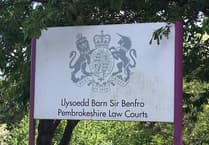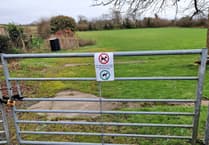A call to cut the 182-day rule for self-catering holiday lets to be able to pay business rates rather than second homes tax in Pembrokeshire was turned down by senior councillors.
A Notice of Motion from Councillor Huw Murphy before the December 4 meeting of Pembrokeshire County Council’s Cabinet asked for a county reduction in Welsh Government criteria where holiday lets must be filled for 182 days a year – up from a previous 70 – in order to qualify for business rates.
Second homes, and self-catering businesses not meeting the criteria, are currently paying a 100 per cent council tax premium in the county.
A rise to 200 per cent was supported by Cabinet on December 4, which will take effect from April if backed by full council later this month.
Cllr Murphy’s notice of motion said: “Tourism is a key component of the Pembrokeshire economy since time immemorial, but more so on the coast and rural areas, and employ a significant number of people both full and part time and is key in supporting many small self-employed businesses.”
He added: “In the current economic crisis PCC need to use every tool at its disposal in supporting these businesses to survive and thrive and the reduction of the number of letting days to 140 required by self-catering accommodation providers to qualify for non-domestic rates would be welcomed by many involved in tourism in the county.”
A report for Cabinet members stated: “The notice of Motion as written cannot be supported as the council has no powers to determine that properties who fail to meet the 182 letting threshold should remain in non-domestic rates, whether at a reduced 140-day threshold or not.”
Speaking at the December meeting, Cabinet Member for corporate Finance Cllr Alec Cormack said the recent public consultation on potential changes in the council tax premium for second homes and empty properties had raised concerns about the increase from 70 days to 182.
He said the responsibility to justify the increase lay with Cardiff, with a distinct lack of data to make an informed decision at the moment, as well as incurring extra staff costs for any change.
In moving the recommendation to refuse, Cllr Cormack added an amendment to review the situation in 12 month’s time, the council also agreeing to write to Welsh Government raising concerns about the issue, as well as requesting information about how the change in days is working.
Members agreed to back the amended recommendation.
Cllr Murphy said he was supportive of the council raising its concerns to Welsh Government, adding he considered 140 days a more realistic period in the longer term.




